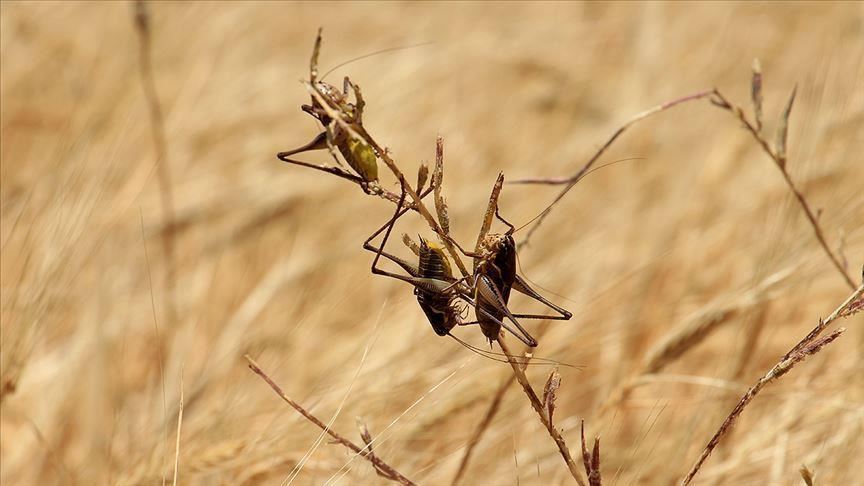
NAIROBI, Kenya
The desert locust invasion in Kenya is the worst that has been seen in the East African country in 70 years, a UN agency said Friday.
The Food and Agriculture Organization (FAO) at a news conference in Nairobi warned that the locust outbreak is threatening food security and livelihoods in East Africa and urged for international aid.
“We must act immediately and at scale to combat and contain this invasion. As the rains start in March there will be a new wave of locust breeding. Now is, therefore, the best time to control the swarms and safeguard people’s livelihoods and food security, and avert further worsening of the food crisis,” said David Phiri, FAO subregional coordinator for Eastern Africa.
According to the UN, the locusts traveled to Africa from Yemen, invading Ethiopia, Eritrea and Somalia decimating pasture and affecting livelihoods of hundreds of thousands of nomadic pastoralists.
Cyclones due to climate change brought about abundant rains in East Africa that created favorable conditions for the locusts to breed.
The billions of locusts then migrated to Kenya in swarms whereby they have consumed tons of green vegetation including grass, crops and tree leaves.
“It is most likely that South Sudan and Uganda will be the next [to be invaded by desert locusts],” said Guled Atan, a representative from the Intergovernmental Authority on Development, an African trade bloc.
Atan noted that luckily for Kenya the invasion happened just after harvesting had been done.
Steven Njoka, director general of the Desert Locust Control Organization for Eastern Africa (DLCO-EA), said that in Kenya aircraft have been sent out to spray pesticides on the billions of locusts.
For the Kenyans who had gone to social media saying they will solve the invasion by eating the locusts, Njoka noted: “Despite them being a great source of food in the world, you cannot finish them by eating them as they number in the billions and reproduce fast”.
The East Africa region is already facing food insecurity with the crisis affecting 19 million people, according to the Food Security and Nutrition Working Group.
Under a worst-case scenario, where the current locust upsurge is not quickly contained and becomes a plague by the next main cropping season, significant crop and pasture losses would cause food security in affected areas to worsen further.
Anadolu Agency website contains only a portion of the news stories offered to subscribers in the AA News Broadcasting System (HAS), and in summarized form. Please contact us for subscription options.

